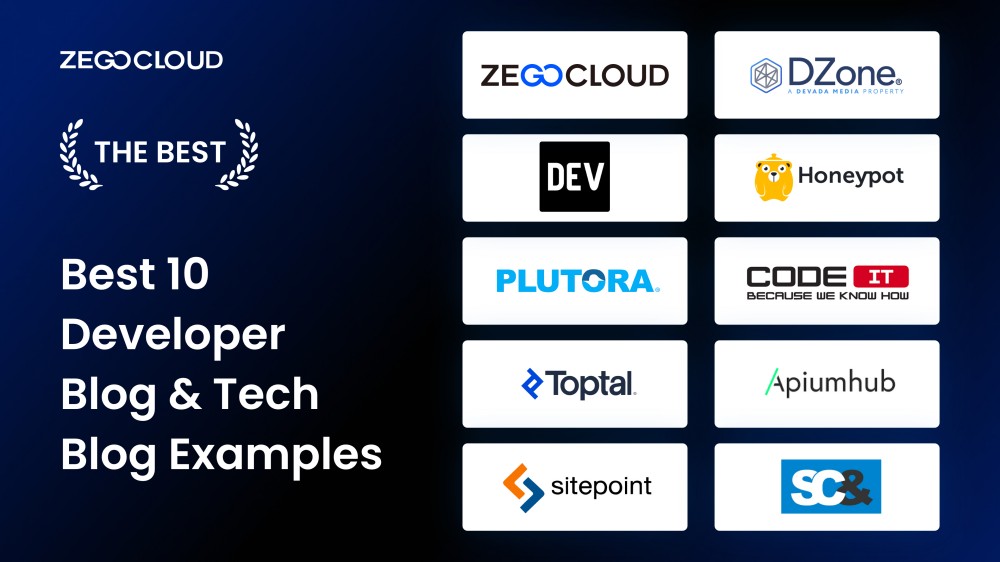Top Factors to Follow the Best tech blog for Tech News and Tutorials
Top Factors to Follow the Best tech blog for Tech News and Tutorials
Blog Article
How Blockchain Modern Technology Is Revolutionizing Data Protection
Blockchain technology is basically changing the landscape of information safety by introducing a decentralized structure that assures enhanced transparency and resilience. Unlike traditional systems, which depend on centralized data repositories, blockchain distributes information across a network, minimizing susceptabilities and solitary points of failing. The use of advanced cryptographic techniques makes certain that data stays tamper-proof, cultivating trust among users and stakeholders. As sectors rapidly adjust to this technology, inquiries emerge about its broader impact and potential difficulties. What implications does this change hold for future data defense strategies and governing frameworks? The solutions might stun you (Best tech blog).
The Fundamentals of Blockchain
Blockchain modern technology, a revolutionary principle in digital information administration, essentially changes how information is saved and protected. At its core, a blockchain is a dispersed ledger that records transactions throughout a network of computers, guaranteeing openness and immutability. The innovation operates a chain of blocks, each having a checklist of transactions. As soon as a block is filled, it is time-stamped and connected to the previous block, creating a chronological chain.
Key to recognizing blockchain is the hashing procedure, which encrypts deal information right into a special alphanumeric code. This cryptographic feature makes certain that any modification in the deal data results in a totally different hash, consequently guarding versus tampering. The consensus device, one more critical element, verifies and verifies new transactions via a network of nodes, consequently getting rid of the need for a centralized authority.
In addition, blockchain's append-only framework guarantees that information, when included, can not be removed or altered. This particular assurances a long-term and proven document of purchases, cultivating trust amongst individuals. Consequently, blockchain gives a robust structure for data stability, offering industries a trusted technique for tracking and handling electronic details in a protected, clear way.
Decentralization and Protection
Decentralization, a core principle of blockchain modern technology, significantly improves information safety and security by dispersing control throughout a network as opposed to counting on a particular, centralized entity. This circulation alleviates the risk of single factors of failing, which are common in standard centralized systems. By spreading data across numerous nodes, blockchain makes certain that even if one node is jeopardized, the whole network remains protected. This redundancy not only strengthens the honesty of the information however likewise boosts its resilience to cyberattacks and system failings.

Each individual in the network has accessibility to the whole blockchain, enabling them to validate and audit purchases individually. Overall, decentralization is crucial in enhancing data safety in blockchain networks.

Cryptographic Techniques
At the heart of blockchain innovation, cryptographic methods play a crucial role in securing information, guaranteeing both privacy and stability. These methods are fundamental to the blockchain's capability to safely record deals in a decentralized fashion. Cryptography in blockchain utilizes a mix of asymmetric and symmetrical algorithms to secure data, making it available just to accredited events - Best tech blog. Public and private key sets are main to this process, enabling safe authentication and identity confirmation without disclosing delicate info.
Hash features are an additional critical element, transforming input data into a fixed-size string of characters, properly creating an unique electronic fingerprint for each block. This makes sure that any kind of attempt to modify the data will cause a completely various hash, therefore maintaining the immutability of the blockchain. Electronic trademarks confirm the credibility and stability of deals, providing a layer of non-repudiation.
The decentralized nature of blockchain, combined with durable cryptographic strategies, gets rid of the need for intermediaries, decreasing prospective vulnerabilities. As blockchain innovation progresses, developments in cryptography such as zero-knowledge proofs and homomorphic security remain to boost protection procedures, even more strengthening data security in this advanced digital ledger system.
Use Situations Throughout Industries

In the healthcare market, blockchain guarantees the protected storage and sharing of individual documents, promoting interoperability while securing delicate data from unapproved accessibility. This innovation equips people with control over their case history and helps with smooth sychronisation among health care suppliers.
Supply chain administration advantages significantly from blockchain's immutable ledger, which makes sure traceability and authenticity of items from beginning to customer. By enhancing transparency, blockchain aids alleviate concerns such as counterfeiting and underhanded sourcing.
In addition, blockchain's decentralized nature is improving the power industry by enabling peer-to-peer power trading, where customers go to my site can purchase and sell excess sustainable power directly. This promotes a much more lasting and effective power environment.
In the realm of copyright, blockchain supplies a tamper-proof platform for developers to register and shield their jobs, making certain rightful attribution and reasonable payment. These diverse use cases highlight blockchain's duty as a pivotal pressure in redefining data security throughout sectors.
Future of Information Security
As we aim to the future of data defense, blockchain technology is positioned to play a pivotal role in safeguarding digital information. With its decentralized and unalterable characteristics, blockchain provides a robust structure for protecting delicate data against unapproved gain access to and cyber hazards. This technology makes certain that when information is tape-recorded, it is almost difficult to change without discovery, therefore providing a substantial advantage over traditional information storage methods.
The integration of blockchain with various other sophisticated modern technologies, such as fabricated knowledge and the Net of Things (IoT), is expected to improve data defense approaches further. By leveraging smart agreements, companies can apply and automate safety and security methods, decreasing human mistake and raising efficiency. Additionally, blockchain's capability to offer transparent and traceable transactions will certainly bolster count on and liability in information management techniques.
As regulative landscapes evolve, blockchain's compliance-friendly nature will certainly end up being increasingly appropriate. It can aid companies fulfill rigorous data defense regulations, such as the General Data Security Policy (GDPR) and the California Consumer Personal Privacy Act (CCPA), by supplying verifiable records of data handling tasks. Ultimately, blockchain's one-of-a-kind attributes position it as a transformative tool in the ongoing pursuit to secure the electronic globe against ever-evolving cyber hazards.
Conclusion
Blockchain innovation represents a paradigm shift in data protection by leveraging decentralization and cryptographic strategies to boost openness, count on, and information stability. As cyber risks evolve, blockchain emerges as an important device for durable data defense throughout various industries.
Blockchain innovation is basically changing the landscape of information protection by presenting a decentralized framework that guarantees improved transparency and resilience. Unlike traditional systems, which count on central data databases, blockchain disperses information across a network, minimizing susceptabilities and solitary factors of failure.Decentralization, a core concept of blockchain modern technology, considerably improves information security by dispersing control throughout a network instead than depending on a singular, central entity.At the heart of blockchain innovation, cryptographic techniques play a webpage pivotal role in securing information, guaranteeing both discretion and integrity.Blockchain innovation stands for a standard shift in information safety and security by leveraging decentralization and cryptographic strategies to improve site transparency, depend on, and data integrity.
Report this page